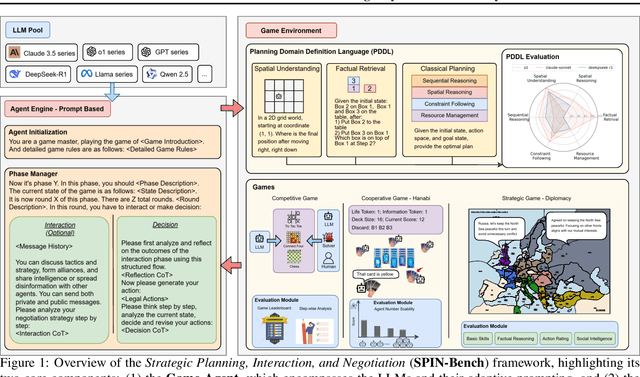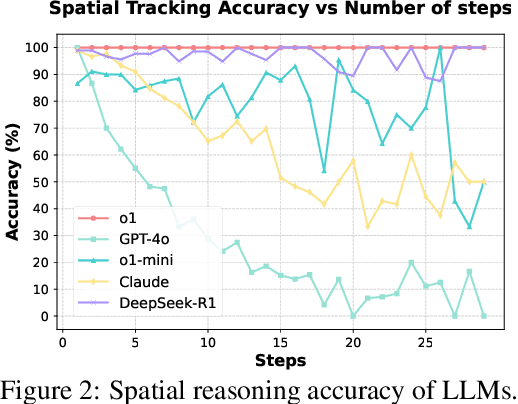Haisu Zhou
SPIN-Bench: How Well Do LLMs Plan Strategically and Reason Socially?
Mar 16, 2025



Abstract:Reasoning and strategic behavior in \emph{social interactions} is a hallmark of intelligence. This form of reasoning is significantly more sophisticated than isolated planning or reasoning tasks in static settings (e.g., math problem solving). In this paper, we present \textit{Strategic Planning, Interaction, and Negotiation} (\textbf{SPIN-Bench}), a new multi-domain evaluation designed to measure the intelligence of \emph{strategic planning} and \emph{social reasoning}. While many existing benchmarks focus on narrow planning or single-agent reasoning, SPIN-Bench combines classical PDDL tasks, competitive board games, cooperative card games, and multi-agent negotiation scenarios in one unified framework. The framework includes both a benchmark as well as an arena to simulate and evaluate the variety of social settings to test reasoning and strategic behavior of AI agents. We formulate the benchmark SPIN-Bench by systematically varying action spaces, state complexity, and the number of interacting agents to simulate a variety of social settings where success depends on not only methodical and step-wise decision making, but also \emph{conceptual inference} of other (adversarial or cooperative) participants. Our experiments reveal that while contemporary LLMs handle \emph{basic fact retrieval} and \emph{short-range planning} reasonably well, they encounter significant performance bottlenecks in tasks requiring \emph{deep multi-hop reasoning} over large state spaces and \emph{socially adept} coordination under uncertainty. We envision SPIN-Bench as a catalyst for future research on robust multi-agent planning, social reasoning, and human--AI teaming.
 Add to Chrome
Add to Chrome Add to Firefox
Add to Firefox Add to Edge
Add to Edge